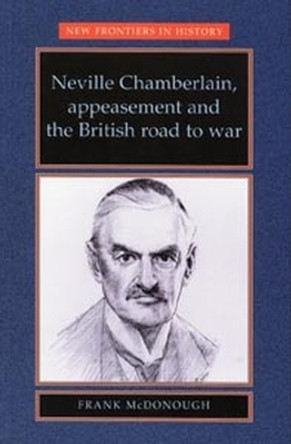Hitler, Mussolini and Japan posed a terrible threat to Britain and its empire. With America withdrawn into isolationism and Stalin's Russia hostile to the West, it is hardly surprising that Britain strove to sustain peace for as long as possible by the traditional tools of diplomacy and accommodation. Stigmatised as 'Appeasement', this has often been held to be a bankrupt policy, epitomised by Chamberlain's Munich Agreement in 1938, handing over the Sudetenland. "Hitler and Appeasement" shows, in contrast, that many of the government's policies were reasonable and well-thought-out; nor did ministers ignore rearmament. After the appalling experiences of the First World War, no one in Britain wished to be in another war. It was only the unpredictable catastrophes of the Russo-German agreement of 1939 and the Fall of France in 1940 that cast Appeasement into disrepute, leaving stains on the reputations of Baldwin and Chamberlain that are little deserved.
Peter Neville offers a important reappraisal of a controversial episode from Britain's past.About the AuthorPeter Neville teaches history at the University of East Anglia. He is the author of a biography of Sir Nevile Henderson and of Winston Churchill: Statesman or Opportunist?
ReviewsTitle reviewed in Church Times, 2008.
"a step-by-step overview of how appeasement came to be the dominant attitude." The Herald, 28/07/07 * Herald, The *
Book InformationISBN 9781852855277
Author Peter NevilleFormat Paperback
Page Count 256
Imprint Hambledon ContinuumPublisher Bloomsbury Publishing PLC
Weight(grams) 398g






